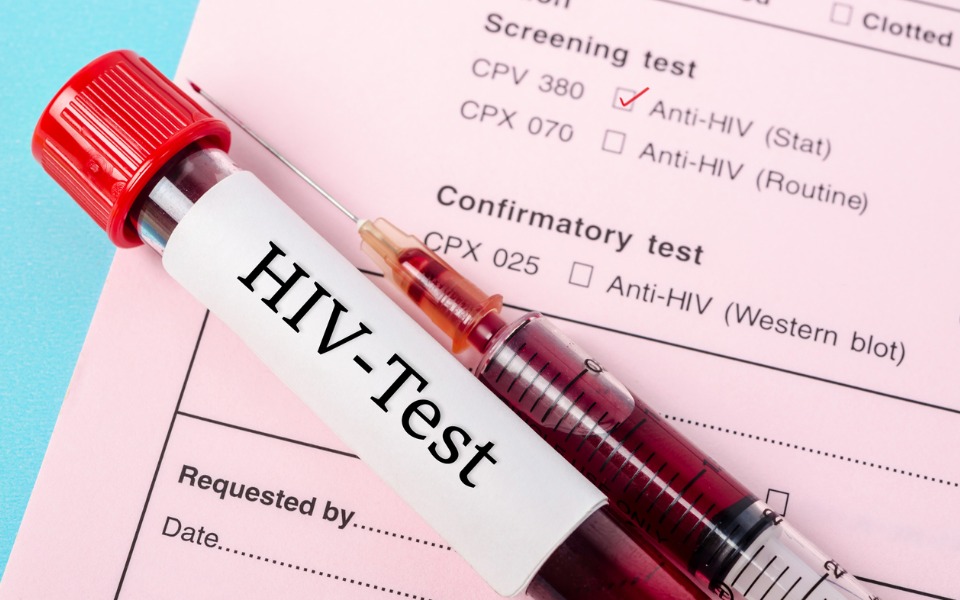
In Bihar, HIV+ve patients fight the odds for survival
The Bihar government’s million-dollar awareness campaign on AIDS seems to have failed to eradicate stigma and discrimination against AIDS patients.

In September 2012, a hapless Kalawati Devi had to drag the lifeless body of her husband Ramchandra Rikiyasan to the backyard of her house and bury him with the help of her 10-year-old daughter after neighbours refused to help with the funeral. Ramchandra was suffering from AIDS.
Seven years later, the situation is no better in the state. Although one of the key objectives of the National AIDS Control Society (NACO) is to ensure “dignity and access to quality care” to HIV-positive people by eradicating stigma and discrimination against them, the Bihar government’s million-dollar awareness campaign on AIDS seems to have failed on that front. HIV-positive patients in the state are still treated as social outcasts, even by doctors in government medical colleges.
In a recent case, an HIV-positive person died, after doctors at Indira Gandhi Institute of Medical Sciences (IGIMS), a premier government hospital in Patna, allegedly refused to admit him. The patient, a resident of Shastri Nagar locality of Patna, who was recently diagnosed with HIV, had been rushed to the hospital when his health deteriorated.
“We rushed him to IGIMS when he complained of acute breathing troubles. The doctors were initially cooperative, but when they came to know that he was an HIV-positive person, they started ignoring him and suggested us to admit him to another government hospital with better facility. We made fervent appeals to them to at least start his treatment as he was having difficulty in breathing, but they didn’t listen to us,” said a family member of the patient.
Also read: Tamil Nadu’s HIV success story is far from over
In view of the patient’s deteriorating health, his family immediately started for Patna Medical College and Hospital (PMCH), some 9 km from IGIMS. But, the ambulance was delayed due to traffic jam on the way, and by the time the patient reached the hospital, he was declared dead.
When contacted, IGIMS superintendent Dr Manish Mandal, denied that the patient was refused treatment.
“The family should have immediately contacted us if they faced any troubles in the treatment of the patient. We are committed to ensuring immediate medical treatment to such patients,” Bihar State Aids Control Society (BSACS)’s project director Manoj Kumar said.
He said the department had been launching intensive campaigns to create awareness among the masses on HIV and AIDS and check the spread of this disease.
The Bihar department has been running awareness campaigns across the state for the past over two decades, convincing people that AIDS doesn’t spread by hugging, handshake, chatting or taking meal with the patients. Besides this, the HIV Act, 2017 provides for legal action against persons showing discrimination towards the patients. Approximately ₹1 crore is spent every year on launching awareness campaigns in the state.
Also read: HIV +ve babies could do a U-turn and test negative
However, the ground reality is different from what the government envisages in its awareness campaigns.
Recently, a Muslim couple in Muzaffarpur district along with their three daughters were thrown out of their ancestral house by the man’s parents, who said their own life would be in danger if the former stayed with them.
The man, in his complaint to the Mushari police said his father assaulted him and his wife when they refused to move and that the village panchayat didn’t show any interest in resolving the issue when approached.
According to a latest report of NACO, of the total number of estimated 21.40 lakh HIV cases in India, Bihar has roughly 1.15 people living with this disease. A latest study said that as many as 89 prisoners out of 4,000 people who underwent medical examination in November 2019 have been detected with AIDS, while the medical tests of the remaining 34,000 prisoners is still under process.
There are a total of 38,000 prisoners lodged in 59 jails of Bihar. One of the main reasons behind the spread of this disease is said to be the inmates’ addiction to drugs, jail officials said.
Also read: Woman dies after ‘wrongly diagnosed’ as HIV positive in Shimla
Recently, on World AIDS Day on December 1, a massive rally was taken out in Patna while various functions, such as workshops, camps, and blood donation camps were held across the state to spread awareness among the youths and villagers about this disease. In addition to that, a helpline number 1097 too has been started to provide instant help to the persons.
“Despite such campaigns, we still have been receiving complains about discrimination towards patients but such cases have come down in recent years,” additional project director of Bihar State AIDS Control Society Dr Abhay Prasad said. According to him, more than awareness campaign, their prime focus right now is on medical treatment.
Health workers involved in the campaign said the campaign was not reaching the ground levels and yielding desired results due to two major reasons — one, due to the high level of illiteracy among the rural populace, and two, large-scale corruption in utilization of funds meant for awareness campaign.
“Government campaign has turned zero at the ground level. The officials are rather busy swindling the funds meant for reaching information to the masses. The campaign is somehow running with the support of low level health workers,” commented a health worker associated with the project.


